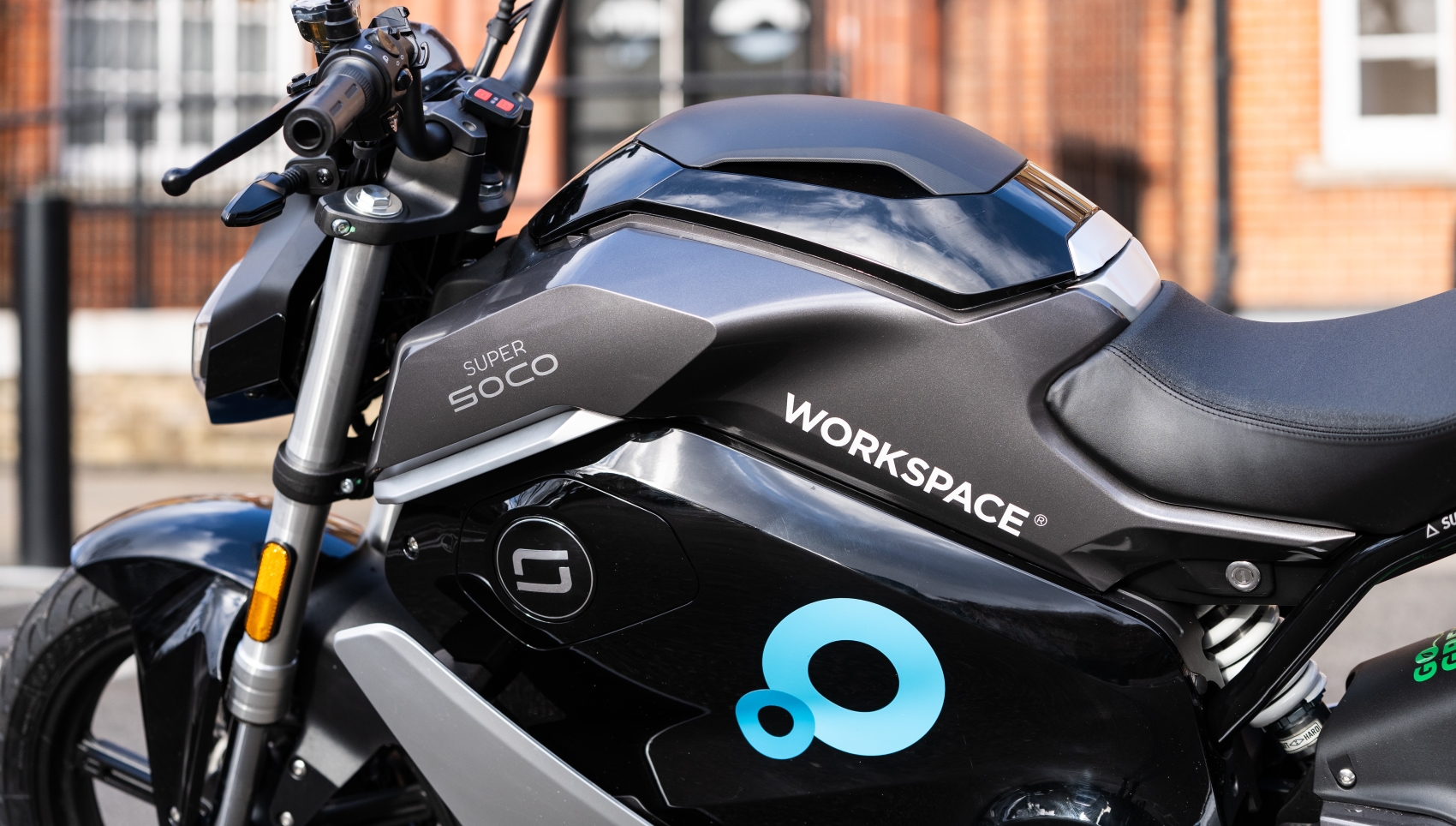
The Keyholding Company are mobile security specialists. As the name suggests, this refers to officers moving from property to property to provide physical security services such as alarm response, patrols, vacant property checks and more.
Although our trusted network of ACS-accredited partners handles our nationwide service delivery, we self-deliver more than 90,000 mobile security jobs per year in London through our incredible London Operations (London Ops) team.
As part of our commitment to making our services kinder to the planet, we conduct an annual report with sustainability experts Alectro, to help us understand our environmental performance and suggest ways to reduce our impact on the world around us.
Traditionally, our London Ops keywardens and patrol officers have used petrol vehicles to travel to and from jobs. It should come as no surprise that the Alectro report consistently highlights our operational mileage as one of the largest contributors to our carbon footprint. To mitigate the carbon cost, we began a journey to electrify our London Ops vehicle fleet in 2021. We are pleased to share that our car fleet is now 100% electric and look to follow suit with our motorbike fleet in 2024.
A two-year process
Following extensive research, we selected the Renault Zoe as our electric vehicle (EV) over alternative options like the Renault Twizy and the Peugeot e-208. The research took into consideration mileage vs cost, required infrastructure and safety.
Choosing a vehicle with good mileage was essential. The average mileage per shift from London Ops is around 30 miles. At full charge the Renault Zoe’s range is 239 miles, meaning they only need to be charged twice a week, and our officers are never caught out mid-shift.
To ensure efficiency and ease concerns over mapping available charging points throughout the city, we have installed four charging points at our London Ops base, which is sufficient operationally, but we are exploring the possibility of installing two more to meet the demand of some projects in the pipeline.

As of December 2023, we have successfully integrated 10 Renault Zoes into our operations, replacing the petrol vehicles we have used for many years (we have retained one petrol car in case of vehicle failure).
To mitigate one-off costs and future-proof our investments in a rapidly developing market, we have opted to lease the vehicles instead of purchasing them outright, which allows us to continually reassess the performance of the vehicles against emerging alternatives. The cost of battery and vehicle maintenance is also covered by our leasing agreements, alleviating any future issues with durability and longevity.
The result: a reduction in cost and carbon consumption
Our electric transition has brought with it significant benefits. While the upfront cost of installing our own charging points was relatively high, we are saving money in the long run as we only pay for the electricity we consume, and the low-carbon, renewable tariff we have chosen allows us to charge our vehicles at a reduced rate off-peak.
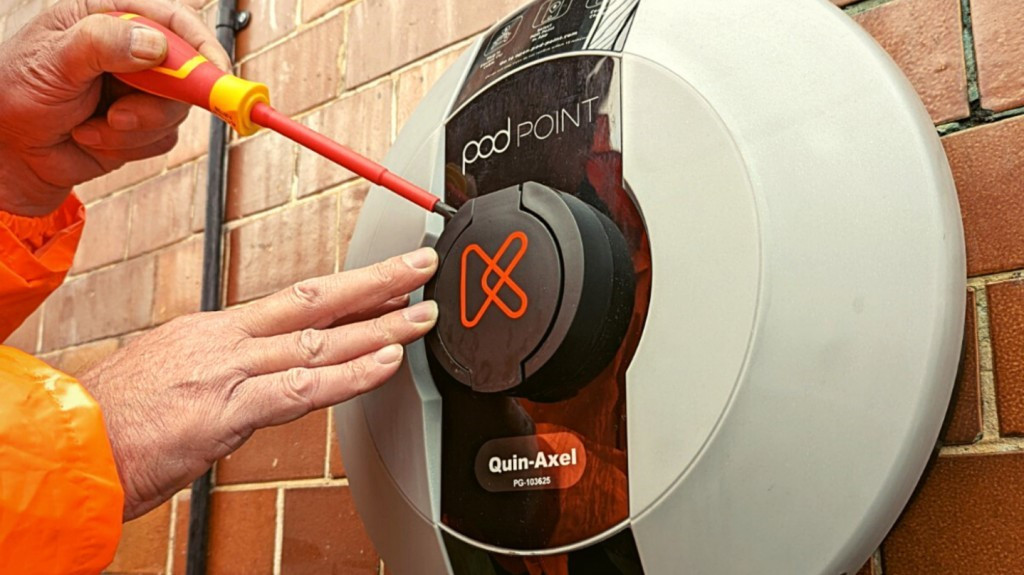
Additionally, at the peak of the congestion charge extension in 2021, our monthly spend was around £2,500. EVs are exempt from the congestion charge and are not liable for the recently introduced ULEZ charges, further reducing our operational costs.
While delivering security services in 2021, the London Ops team covered over 425,000km, which led to 33.10tCO2e total emissions. Our gradual transition to electric cars has positively impacted our operational emissions, despite a growth in services and mileage.
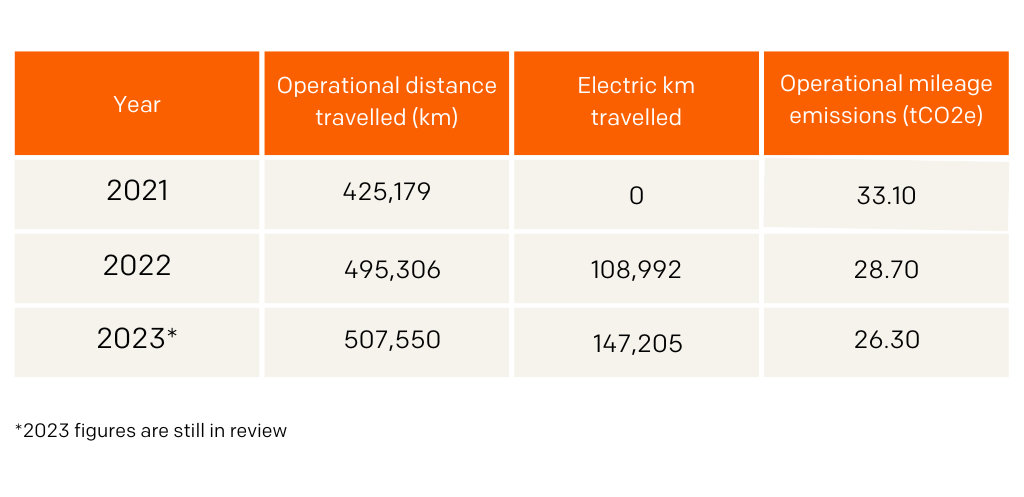
As you can see, our operational emissions are still not at zero. This is because most of the travel our officers carry out is via motorbike, as it’s the fastest way of getting around the hustle and bustle of the city streets. This year, we are aiming to integrate electric motorbikes into our fleet, but it has taken a lot of research to get to this point.
Our electric motorbike journey
Until recently, the technology for electric motorbikes has lagged behind that of electric cars due to the lack of adoption in commercial fleets, which means range and availability are tailored towards domestic use. As a result, our search for a cost-effective, functional and durable bike has taken us longer than to find the Renault Zoe.
We put several bikes through rigorous testing, leaning on the expertise of our London Operations team of keywardens and officers to help us come to a conclusion. Their opinion was crucial to this process, and they tirelessly put the bikes through their paces.
Our research encompassed three key areas:
1. Performance
From a performance standpoint, we needed to understand what range and speed the bikes were capable of, how they handled, and whether they felt safe.
We concluded that our bike of choice should be fast – but not too fast – have a minimum range of 50km per full charge, a battery charge time of under four hours and should be robust enough to stand up to the rigours of central London travel!
2. Infrastructure
Unlike car batteries, which need more expensive infrastructure, we opted for hot-swappable batteries that can be charged with a 3-pin plugs, allowing us to establish a charging station at our London Ops base. To ensure 24/7 efficiency, we’ll also place pre-charged batteries at strategic locations around London.
3. Aesthetics
To make things even tricker, our choice of electric bike had to go beyond efficiency. It would need to mirror the pride and professionalism of our officers and be in keeping with our company image. The officers thought the lower-profile scooters we tested didn’t reflect the authority they needed to show when arriving at a job.
We decided to discount the scooters and smaller bikes and focus on finding a vehicle that felt and looked like a normal motorbike.
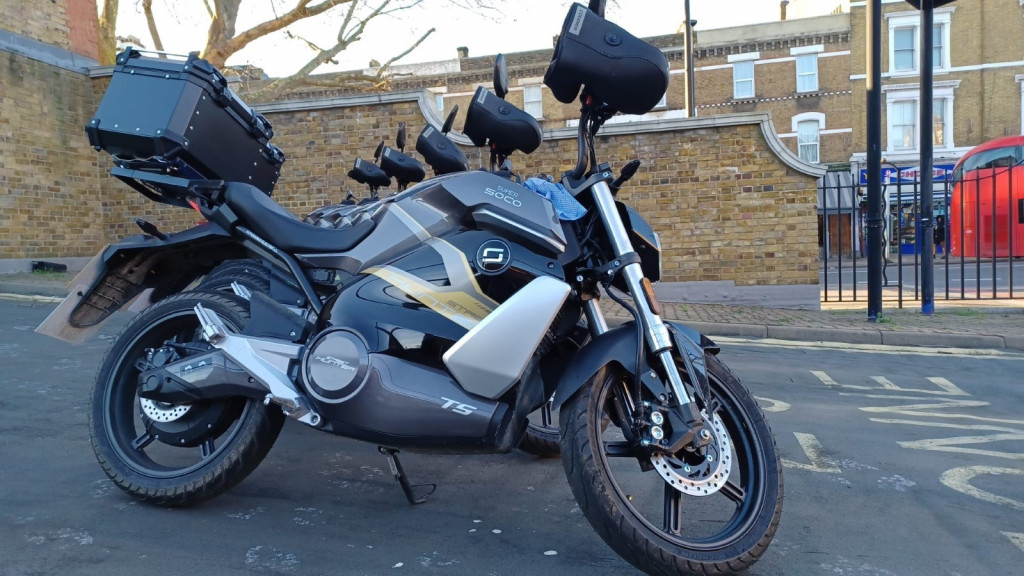
After assessing 6 bikes including the BMW CE04, Zero FX and the Seat MO, our eventual choice was the Super Soco TS Street Hunter.
The Street Hunter is optimised for city riding, with a low centre of gravity and responsive handling, on top of a powerful and sturdy appearance (which our officers loved!). Additionally, its speed is appropriate for city roads – unlike the ‘Tesla of motorbikes’, the Zero!
But most importantly, the bike was the best choice operationally. Two fully charged batteries give the bike over 100km of range, and a charging time of 3.5 hours connected to a 3-point pin allows us to easily rotate batteries in and out of the bikes when needed.
We are delighted to have just received our first 5 Street Hunter bikes (with four batteries per bike). Electric motorbikes are priced far more competitively than electric cars, so we have made this initial purchase outright.
We have set ourselves an ambitious target of purchasing a further 15 electric motorbikes by the end of 2024, at which point we will have completed the electric transition of our entire London Operations fleet!
EV bike fleet in action with Workspace Group
Our first set of EV bikes will replace the existing petrol bikes dedicated to patrolling 50 sites across London for our client Workspace Group.
A key focus for Darren Baker, their Head of Security and Risk Management, is offering customers 24/7 access without compromising security.
Since we started working together eight years ago, we have deployed a ‘cluster model’ in London – a smart, efficient and flexible way to secure a large estate within a geographic region.
Their sites are grouped into five areas patrolled by motorbike-mounted, SIA-licensed security officers for faster response to alarm activations. The even smarter part is that with information from their remote CCTV monitoring service provider, SMC, these officers can be rapidly deployed to where need is greatest, day or night.

The new bikes (and the uniform of the team riding them) are branded with Workspace’s colours and logos to create a visible endorsement of the brand and their commitment to the sustainable security of their estate.
I’m really proud of how sustainable our security is. This switch will cut our carbon emissions by over two tonnes during the course of our current contract.
Darren Baker, Head of Security and Risk Management, Workspace Group
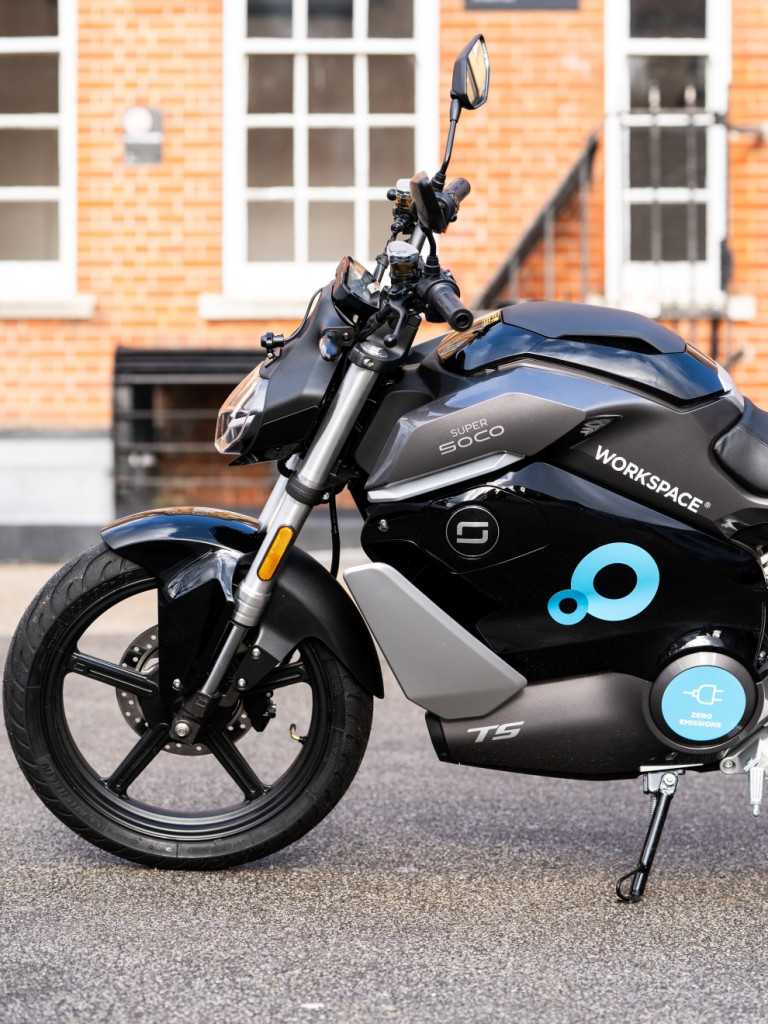

Award-nominated sustainability efforts
We have made great strides towards our net zero objective, and our hard work was recognised in the 2024 OSPAs Outstanding Security Sustainability category. Our submission outlined some of our recent initiatives, such as displaying a per-job emissions calculation on reports and adding a new ESG category to our annual Partner Performance Awards. You can read about the highlights here.
If you are interested in learning about our approach to delivering sustainable security services, take a look at Our Environment, and make sure to stay up to date with what we are up to on LinkedIn.
Images courtesy of Workspace Group
Delivering security with a conscience
If you want to work with an environmentally conscious security provider to help hit your own ESG targets, we can help.
Get in touch

